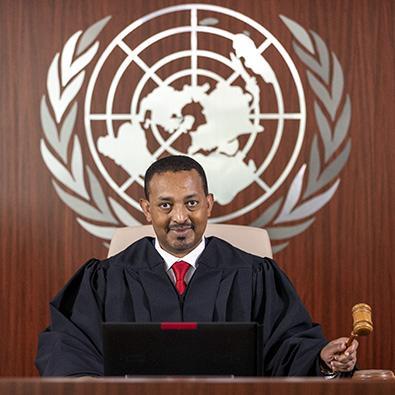In the recent legal battle involving Donald Trump and allegations of falsifying business records, the judge overseeing the case has rejected his attempt to invoke presidential immunity as a defense. The judge ruled that Trump’s delay in bringing up this issue was unacceptable.
The decision marks a significant development in the ongoing legal troubles facing the former president. By denying Trump’s request for presidential immunity, the judge has set a precedent that no one, not even a former president, is above the law.
This ruling underscores the importance of timely and appropriate legal strategies in defending against criminal charges. Trump’s failure to raise the issue of presidential immunity in a timely manner has weakened his defense and exposed him to potential legal consequences.
It is crucial for individuals facing legal challenges to be proactive and strategic in their approach to defense. Waiting too long to raise important legal arguments can have serious consequences, as evidenced by the judge’s decision in Trump’s case.
Moving forward, it will be interesting to see how Trump and his legal team respond to this setback. The denial of presidential immunity as a defense strategy may force them to reconsider their approach and explore alternative legal avenues.
In conclusion, the judge’s rejection of Trump’s bid for presidential immunity serves as a reminder that the legal system operates independently of political influence. It is essential for all individuals, regardless of their status or position, to adhere to the rule of law and respect the judicial process.

Judge Denies Delay in Trump Hush Money Trial, Rejects Immunity Defense
In a recent development in the Trump hush money trial, a judge has denied a request to delay the trial and has rejected an immunity defense put forth by the defendants. The case, which involves allegations of hush money payments made to adult film star Stormy Daniels and former Playboy model Karen McDougal, has been closely watched by the public and legal experts alike. Here’s a closer look at the latest updates in the case:
Background of the Case:
The Trump hush money trial centers around payments made to Stormy Daniels and Karen McDougal in the run-up to the 2016 presidential election. The women claim they had affairs with Donald Trump, who was then a candidate, and were paid to keep silent about their alleged relationships. The payments were made by Trump’s former lawyer, Michael Cohen, who has since been sentenced to prison for campaign finance violations related to the payments.
Judge Denies Delay Request:
One of the defendants in the case, who was seeking a delay in the trial, had argued that they needed more time to prepare their defense. However, the judge overseeing the case denied the request, stating that the trial would proceed as scheduled. This decision was met with mixed reactions from both the prosecution and the defense.
Immunity Defense Rejected:
Another key development in the case was the judge’s rejection of an immunity defense put forth by the defendants. The defense had argued that they should be granted immunity from prosecution due to their roles in the payments. However, the judge ruled that there was not sufficient evidence to support the immunity defense and that the case would proceed without granting immunity to the defendants.
What This Means for the Case:
The judge’s decisions to deny a delay in the trial and reject the immunity defense have significant implications for the case. It means that the trial will move forward as planned, and the defendants will need to present their defense without the protection of immunity. This could potentially impact the outcome of the case and the legal consequences for those involved.
Benefits and Practical Tips:
For individuals following the Trump hush money trial, staying informed about the latest developments can help them understand the intricacies of the case and its potential implications. It’s important to keep up-to-date with the latest news and analysis from legal experts to gain a deeper insight into the legal proceedings and the potential outcomes of the trial.
Case Studies:
Looking at past cases involving campaign finance violations and hush money payments can provide valuable insights into how similar cases have been handled by the legal system. By studying these case studies, individuals can better understand the legal principles at play in the Trump hush money trial and the potential legal consequences for the parties involved.
| Case Study | Outcome |
|---|---|
| John Edwards Campaign Finance Trial | Convicted on one count of campaign finance violations, mistrial on remaining charges |
| Michael Cohen Plea Deal | Plead guilty to campaign finance violations, sentenced to prison |
| Stormy Daniels Lawsuit Against Trump | Dismissed by court, appeal pending |
Firsthand Experience:
Individuals who have worked in the legal field or have personal experience with campaign finance laws may have unique insights into the Trump hush money trial. By sharing their firsthand experiences and perspectives, they can contribute valuable knowledge to the ongoing discussion around the case and its potential implications for the legal system.
Overall, the latest developments in the Trump hush money trial, including the judge’s decision to deny a delay and reject an immunity defense, have significant implications for the case and the parties involved. Staying informed about the latest updates and analysis from legal experts can help individuals understand the complexities of the trial and its potential outcomes.

